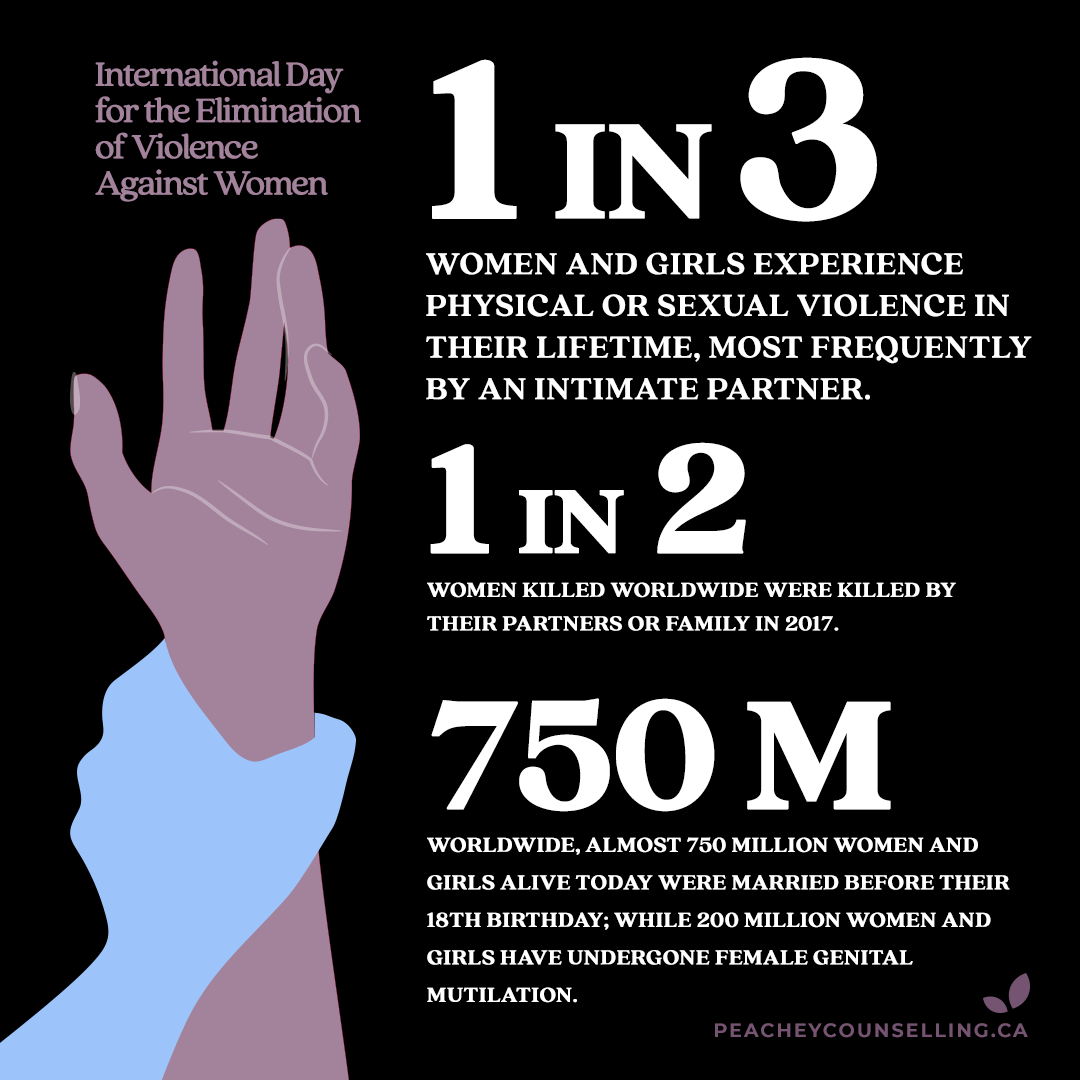Violence Against Women and Girls
Facts everyone should know
November 25th is recognized as the United Nations International Day for the Elimination of Violence Against Women.
Women's rights activists have been observing this date against gender-based violence since 1981. A date selected to honour the Mirabal sisters, three political activists from the Dominican Republic who were brutally murdered in 1960 by order of the country’s ruler, Rafael Trujillo. However, it wasn’t until February 7th, 2000 that the United Nations’ General Assembly officially designated November 25th as the International Day for the Elimination of Violence Against Women. In doing so, governments, international organizations as well as NGO’s can now join together and organize activities designated to raise public awareness of the issue each year on that date.
“Violence against women and girls is one of the most persistent and devastating human rights violations in our world today and remains largely unreported to the impunity, silence, stigma and shame surrounding it.”
-From the “Declaration on the Elimination of Violence Against Women” Issued by the UN General Assembly
Violence manifests itself in physical, sexual and psychological forms including:
Intimate partner violence: battering, psychological abuse, marital rape, femicide;
Sexual violence and harassment: rape, forced sexual acts, unwanted sexual advances, child sexual abuse, forced marriage, street harassment, stalking, cyber harassment;
Human trafficking: slavery, sexual exploitation;
Female genital mutilation, and
Child marriage.
The adverse psychological, sexual and reproductive health consequences of violence against women and girls, affects women at all stages of their life. While gender-based violence can happen to anyone, anywhere, some women and girls are particularly vulnerable - young girls and older women, women who identify as lesbian, bisexual, transgender or intersex, migrants and refugees, indigenous women and ethnic minorities, or women and girls living with disabilities or HIV, and those living through humanitarian crises.
Violence against women continues to be an obstacle to achieving equality, development, peace as well as to the fulfillment of women and girls’ human rights. And, there is still a long way to go at a global scale. To date, only two out of three countries have outlawed domestic violence, while 37 countries worldwide still exempt rape perpetrators from prosecution if they are married to - or eventually will marry the victim - and 49 countries currently have no laws protecting women from domestic violence.
What you can do
The 2020 UNiTE Campaign “Orange the World: Fund, Respond, Prevent, Collect” takes place during the UN System’s 16 Days of Activism against Gender-Based Violence from November 25 - December 10th.
Take action!
Educate yourself about the causes and consequences of violence against women;
Orange your social media and let your community know you are there for support, share support resources, information about available services;
Donate to your local or national shelter or hotline service;
Orange the world by speaking up against cyberviolence;
Make a personal commitment to not condone or accept violence, and speak up;
Have conversations with family and friends about the negative impact of violence against women and girls on individuals and communities;
Donate to the UN Trust Fund to End Violence Against Women.
Sources: United Nations / UN Women
If you or someone you know is experiencing an abusive relationship, you must remember that safety is key, and that abuse is NEVER acceptable or justified, in any situation.
Whatever it is, we’re here for you.
Life is uncertain. Jobs are stressful. Parenting is hard. Relationships take work. Families can be dysfunctional. And, sometimes love hurts. When you’re confronted by feelings, events, or issues that are making your life challenging, it’s okay to ask for some help.



